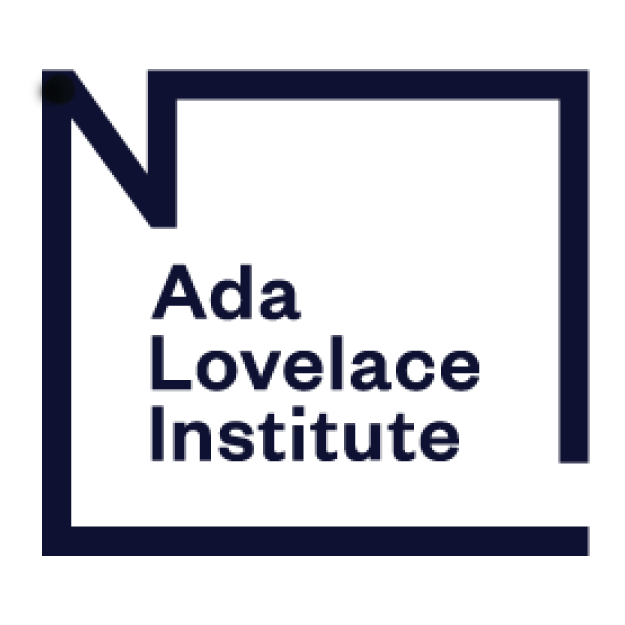2026
Potapov, Kyrill; Ramadan, Malak
Participatory design of an eco-feedback tool with teens for community energy futures Online
2026, visited: 02.03.2026.
@online{nokey,
title = {Participatory design of an eco-feedback tool with teens for community energy futures},
author = {Kyrill Potapov and Malak Ramadan},
url = {https://www.sciencedirect.com/science/article/pii/S2212868925000832},
year = {2026},
date = {2026-03-02},
urldate = {2026-03-02},
keywords = {},
pubstate = {published},
tppubtype = {online}
}
Murphy, Oonagh; the New Technologies & Innovation Team,
AI Technologies and Emerging Forms of Creative Practice Online
2026, visited: 04.02.2026.
@online{nokey,
title = {AI Technologies and Emerging Forms of Creative Practice},
author = {Oonagh Murphy and the New Technologies & Innovation Team
},
url = {www.artscouncil.org.uk/ai-technologies-and-emerging-forms-creative-practice},
year = {2026},
date = {2026-02-04},
urldate = {2026-02-04},
keywords = {},
pubstate = {published},
tppubtype = {online}
}
2025
Gambarotto, Andrea; Potapov, Kyrill; Sachs, Carl
Design for Autonomy: An Enactive Approach to Human–Computer Interaction Online
2025, visited: 19.12.2025.
@online{nokey,
title = {Design for Autonomy: An Enactive Approach to Human–Computer Interaction},
author = {Andrea Gambarotto and Kyrill Potapov and Carl Sachs},
url = {https://journals.sagepub.com/doi/10.1177/10597123251405703},
year = {2025},
date = {2025-12-19},
urldate = {2025-12-19},
keywords = {},
pubstate = {published},
tppubtype = {online}
}
Westenberger, Paula; Collett, Clementine; Moruzzi, Caterina; Parker, Martin; Taylor, Alex
2025, visited: 18.12.2025.
@online{nokey,
title = {BRAID Researchers Response to the Call for input for EMRTD study: Artificial Intelligence, Cultural Rights, and the Right to Development},
author = {Paula Westenberger and Clementine Collett and Caterina Moruzzi and Martin Parker and Alex Taylor},
url = {https://zenodo.org/records/17975180},
year = {2025},
date = {2025-12-18},
urldate = {2025-12-18},
keywords = {},
pubstate = {published},
tppubtype = {online}
}
Barron, Dominique; Marres, Noortje; Coldicutt, Rachel; Taylor, Alex; Ganesh, Maya Indira
AI in the Street: Lessons from everyday encounters with AI innovation Online
2025, visited: 20.11.2025.
@online{nokey,
title = {AI in the Street: Lessons from everyday encounters with AI innovation},
author = {Dominique Barron and Noortje Marres and Rachel Coldicutt and
Alex Taylor and Maya Indira Ganesh},
url = {https://www.careful.industries/ai-in-the-street/landing},
year = {2025},
date = {2025-11-20},
urldate = {2025-11-20},
keywords = {},
pubstate = {published},
tppubtype = {online}
}
Collett, Clementine
The Impact of Generative AI on the Novel Online
2025, visited: 20.11.2025.
@online{nokey,
title = { The Impact of Generative AI on the Novel},
author = {Clementine Collett},
url = {https://www.mctd.ac.uk/impact-of-generative-ai-on-the-novel/},
year = {2025},
date = {2025-11-20},
urldate = {2025-11-20},
keywords = {},
pubstate = {published},
tppubtype = {online}
}
Tollon, Fabio
The Contested Meanings of Responsible AI Technical Report
2025.
@techreport{nokey,
title = {The Contested Meanings of Responsible AI},
author = {Fabio Tollon },
editor = {Renjie Butalid
Connor Wright
Ismael Kherroubi García},
url = {https://montrealethics.ai/state},
doi = {10.5281/zenodo.17328882},
year = {2025},
date = {2025-11-01},
urldate = {2025-11-01},
abstract = {The State of AI Ethics Report (Volume 7) },
howpublished = {The State of AI Ethics Report (Volume 7) },
keywords = {},
pubstate = {published},
tppubtype = {techreport}
}
Taylor, Alex S.; Marres, Noortje; Bunz, Mercedes; Phan, Thao
Reciprocity Deficits: Observing AI in the street with everyday publics Online
2025, visited: 28.10.2025.
@online{nokey,
title = {Reciprocity Deficits: Observing AI in the street with everyday publics},
author = {Alex S. Taylor and Noortje Marres and Mercedes Bunz and Thao Phan},
doi = {https://doi.org/10.48550/arXiv.2510.23342},
year = {2025},
date = {2025-10-28},
urldate = {2025-10-28},
journal = {Arxiv},
keywords = {},
pubstate = {published},
tppubtype = {online}
}
Townsend, Beverley
Governance-by-Design As an Enabler of AI in Digital Health in Sub-Saharan Africa Journal Article
In: Law, Technology and Humans, 2025, ISSN: 2652-4074.
@article{nokey,
title = {Governance-by-Design As an Enabler of AI in Digital Health in Sub-Saharan Africa},
author = {Beverley Townsend},
url = {https://lthj.qut.edu.au/article/view/3975},
doi = {https://doi.org/10.5204/lthj.3975},
issn = {2652-4074},
year = {2025},
date = {2025-10-27},
journal = {Law, Technology and Humans},
keywords = {},
pubstate = {published},
tppubtype = {article}
}
Holter, Steffen; Moruzzi, Caterina; El-Assady, Mennatallah
Towards Agency in Human-AI Collaboration Journal Article
In: IEEE Computer Graphics and Applications, 2025.
@article{Holter2025,
title = {Towards Agency in Human-AI Collaboration},
author = {Steffen Holter and Caterina Moruzzi and Mennatallah El-Assady},
doi = {10.1109/MCG.2025.3623892},
year = {2025},
date = {2025-10-20},
urldate = {2025-10-20},
journal = {IEEE Computer Graphics and Applications},
keywords = {},
pubstate = {published},
tppubtype = {article}
}
Pfefferkorn, Jasmin; Hood, Beverley
Computational intimacies, from prompting to prose Book Chapter
In: Vanessa Bartlett, Jasmin Pfefferkorn; Sunde, Emilie K. (Ed.): Open Humanities Press, Decentring Ethics: AI Art as Method, 2025.
@inbook{nokey,
title = {Computational intimacies, from prompting to prose},
author = {Jasmin Pfefferkorn and Beverley Hood},
editor = {Vanessa Bartlett, Jasmin Pfefferkorn and Emilie K. Sunde},
url = {https://www.openhumanitiespress.org/books/titles/decentring-ethics/},
year = {2025},
date = {2025-09-24},
urldate = {2025-09-24},
publisher = {Open Humanities Press},
edition = {Decentring Ethics: AI Art as Method},
keywords = {},
pubstate = {published},
tppubtype = {inbook}
}
Townsend, BA; Hodge, VJ; Richardson, H; Calinescu, R; Arvind, TT
Cautious optimism: public voices on medical AI and sociotechnical harm Journal Article
In: Frontiers in Digital Health, vol. 7, 2025.
@article{nokey,
title = {Cautious optimism: public voices on medical AI and sociotechnical harm},
author = {BA Townsend and VJ Hodge and H Richardson and R Calinescu and TT Arvind},
url = {https://www.frontiersin.org/journals/digital-health/articles/10.3389/fdgth.2025.1625747/full},
year = {2025},
date = {2025-09-23},
urldate = {2025-09-23},
journal = {Frontiers in Digital Health},
volume = {7},
keywords = {},
pubstate = {published},
tppubtype = {article}
}
Westenberger, Paula; Farmaki, Despoina
Artificial intelligence for cultural heritage research: the challenges in UK copyright law and policy Journal Article
In: European Journal of Cultural Management and Policy, vol. 15, 2025.
@article{nokey,
title = {Artificial intelligence for cultural heritage research: the challenges in UK copyright law and policy},
author = {Paula Westenberger and Despoina Farmaki},
url = {https://www.frontierspartnerships.org/journals/european-journal-of-cultural-management-and-policy/articles/10.3389/ejcmp.2025.14009/full},
doi = {https://doi.org/10.3389/ejcmp.2025.14009},
year = {2025},
date = {2025-09-09},
journal = {European Journal of Cultural Management and Policy},
volume = {15},
keywords = {},
pubstate = {published},
tppubtype = {article}
}
Thornton, Pip
Page Against The Machine: On the Poetics of AI Refusal Miscellaneous
Scottish Poetry Library, 2025.
@misc{nokey,
title = {Page Against The Machine: On the Poetics of AI Refusal},
author = {Pip Thornton},
url = {https://www.scottishpoetrylibrary.org.uk/2025/09/page-against-the-machine-on-the-poetics-of-ai-refusal/},
year = {2025},
date = {2025-09-03},
urldate = {2025-09-03},
howpublished = {Scottish Poetry Library},
keywords = {},
pubstate = {published},
tppubtype = {misc}
}
Townsend, Beverley A
Multiculturalism and AI value alignment Journal Article
In: Oxford Intersections: AI in Society, 2025.
@article{,
title = {Multiculturalism and AI value alignment},
author = {Beverley A Townsend},
url = {https://academic.oup.com/edited-volume/59762/chapter-abstract/527143150?redirectedFrom=fulltext},
year = {2025},
date = {2025-07-25},
urldate = {2025-07-25},
journal = {Oxford Intersections: AI in Society},
keywords = {},
pubstate = {published},
tppubtype = {article}
}
Moruzzi, Caterina
Imagination and Creativity: A Necessary Connection? Journal Article
In: Analysis, vol. 85, iss. 1, 2025.
@article{nokey,
title = {Imagination and Creativity: A Necessary Connection? },
author = {Caterina Moruzzi},
url = {https://doi.org/10.1093/analys/anaf021 },
year = {2025},
date = {2025-07-15},
urldate = {2025-07-15},
journal = {Analysis},
volume = {85},
issue = {1},
keywords = {},
pubstate = {published},
tppubtype = {article}
}
Wright, Kate; Porter, Kristian
PSM and AI (part 1): mapping how public service media use AI in Journalism Miscellaneous
2025.
@misc{nokey,
title = {PSM and AI (part 1): mapping how public service media use AI in Journalism},
author = {Kate Wright and Kristian Porter},
url = {https://www.publicmediaalliance.org/wp-content/uploads/2025/08/PSM-and-AI_PMA-Industry-Report.pdf},
year = {2025},
date = {2025-07-01},
keywords = {},
pubstate = {published},
tppubtype = {misc}
}
Harrell, Alexis; Neubacher, Christian; Gidda, Navneet; Collett, Clementine
How is Generative AI reshaping the future of the novel? Summary of the 'Forum on GenAI and the novel' Miscellaneous
2025.
@misc{nokey,
title = {How is Generative AI reshaping the future of the novel? Summary of the 'Forum on GenAI and the novel'},
author = {Alexis Harrell and Christian Neubacher and Navneet Gidda and Clementine Collett},
url = {https://www.mctd.ac.uk/wp-content/uploads/2025/09/GenAI-and-the-Novel-Forum_Summary.pdf},
year = {2025},
date = {2025-06-27},
urldate = {2025-06-27},
keywords = {},
pubstate = {published},
tppubtype = {misc}
}
Murphy, O; NewTechnologiesInnovationTeam,
Responsible AI in practice: The journey of Arts Council England Technical Report
2025.
@techreport{nokey,
title = {Responsible AI in practice: The journey of Arts Council England},
author = {O Murphy and NewTechnologiesInnovationTeam},
url = {https://www.artscouncil.org.uk/research-and-data/responsible-ai-arts-council-england},
year = {2025},
date = {2025-06-25},
urldate = {2025-06-25},
abstract = {In May 2024, Arts Council England’s Executive Board approved three research and development projects to explore how to respond to the growing impact of AI on the Arts Council and the wider creative and cultural sector. These projects focused on:
How the Arts Council can use AI responsibly internally.
How it can help the creative and culture sector understand and manage the opportunities and challenges of AI.
How it can contribute to shaping national AI policy in the UK.
This report focuses on the first project: how the Arts Council is using AI responsibly in its internal work. We’re sharing our approach to be transparent (a key part of our new AI Policy).
The report explains how the Arts Council has:
Set up a governance structure to oversee the use of AI
Created an internal AI policy to guide staff in using AI tools
Monitored software licences to understand how staff are using AI
Published a public statement about how AI is used in the grant-making process
Launched pilot programmes to test how AI can be used in ways specific to the organisation },
keywords = {},
pubstate = {published},
tppubtype = {techreport}
}
How the Arts Council can use AI responsibly internally.
How it can help the creative and culture sector understand and manage the opportunities and challenges of AI.
How it can contribute to shaping national AI policy in the UK.
This report focuses on the first project: how the Arts Council is using AI responsibly in its internal work. We’re sharing our approach to be transparent (a key part of our new AI Policy).
The report explains how the Arts Council has:
Set up a governance structure to oversee the use of AI
Created an internal AI policy to guide staff in using AI tools
Monitored software licences to understand how staff are using AI
Published a public statement about how AI is used in the grant-making process
Launched pilot programmes to test how AI can be used in ways specific to the organisation
ArtsCouncilEngland, (Ed.)
Responsible AI practical toolkit (Arts Council England) Miscellaneous
2025.
@misc{nokey,
title = {Responsible AI practical toolkit (Arts Council England)},
editor = {ArtsCouncilEngland},
url = {https://www.artscouncil.org.uk/lets-create/strategy-2020-2030/investment-principles/investment-principles-resource-hub/dynamism-resource-hub/responsible-ai-practical-toolkit},
year = {2025},
date = {2025-06-25},
urldate = {2025-06-25},
abstract = {These resources were created over a twelve-month research and development period at Arts Council England. They offer a framework to help creative and cultural organisations that want to create their own Responsible AI policies and practices.
As explained in their report ‘Responsible AI in Practice: The Journey of Arts Council England’, there is no single “one-size-fits-all” AI policy. In fact, developing an AI policy is more about people than technology. It should reflect the organisation’s values, how much risk they're willing to take, and the sector they work in.
Arts Council England created seven guides to help people take a thoughtful and collaborative approach to building AI policies and practices that match their organisation’s purpose.
Relates to BRAID Fellowship https://braiduk.org/developing-a-responsible-ai-innovation-framework-for-the-subsidised-arts-and-culture-sector-with-arts-council-england},
keywords = {},
pubstate = {published},
tppubtype = {misc}
}
As explained in their report ‘Responsible AI in Practice: The Journey of Arts Council England’, there is no single “one-size-fits-all” AI policy. In fact, developing an AI policy is more about people than technology. It should reflect the organisation’s values, how much risk they're willing to take, and the sector they work in.
Arts Council England created seven guides to help people take a thoughtful and collaborative approach to building AI policies and practices that match their organisation’s purpose.
Relates to BRAID Fellowship https://braiduk.org/developing-a-responsible-ai-innovation-framework-for-the-subsidised-arts-and-culture-sector-with-arts-council-england
C.Moruzzi,; Tallyn, E.; F.Liddell,; B.Dixon,; J.Collomosse,; C.Elsden,
2025, visited: 23.06.2025.
@online{nokey,
title = {Content Authenticities: A Discussion on the Values of Provenance Data for Creatives and Their Audiences},
author = {C.Moruzzi and E. Tallyn and F.Liddell and B.Dixon and J.Collomosse and C.Elsden},
url = {https://dl.acm.org/doi/10.1145/3698061.3726918},
year = {2025},
date = {2025-06-23},
urldate = {2025-06-23},
keywords = {},
pubstate = {published},
tppubtype = {online}
}
Tollon, Fabio; Vallor, Shannon
The Responsible AI Ecosystem: A BRAID Landscape Study Miscellaneous
2025.
@misc{nokey,
title = {The Responsible AI Ecosystem: A BRAID Landscape Study},
author = {Fabio Tollon and Shannon Vallor},
url = {https://zenodo.org/records/15195686},
year = {2025},
date = {2025-06-18},
urldate = {2025-06-18},
abstract = {This report, the first in a two-part study of the Responsible AI landscape by the UKRI’s BRAID programme, provides a chronological and conceptual map of the Responsible AI (R-AI) ecosystem. We chart the role of various actors and communities in this ecosystem’s emergence, especially the vital contributions from the arts and humanities, and the historical development and contestation of different meanings of ‘responsibility’ in the context of AI.
In the Preface, we outline the motivation and aims of the study. In Section One, we outline the different meanings and conceptions of ‘Responsible AI’ commonly deployed by different stakeholders. We follow in Section Two with a chronological account of how ‘responsibility’ for the impact of new technologies in computing came to be articulated, culminating in what today we call the Responsible AI ecosystem. We trace this history from the 1950s to the present, concluding in Section Three with a review of seven lessons learned from these ‘first waves’ of Responsible AI research, practice, and advocacy; lessons that can be carried forward in our collective efforts to enable and sustain responsible AI innovation, now and for the future.},
keywords = {},
pubstate = {published},
tppubtype = {misc}
}
In the Preface, we outline the motivation and aims of the study. In Section One, we outline the different meanings and conceptions of ‘Responsible AI’ commonly deployed by different stakeholders. We follow in Section Two with a chronological account of how ‘responsibility’ for the impact of new technologies in computing came to be articulated, culminating in what today we call the Responsible AI ecosystem. We trace this history from the 1950s to the present, concluding in Section Three with a review of seven lessons learned from these ‘first waves’ of Responsible AI research, practice, and advocacy; lessons that can be carried forward in our collective efforts to enable and sustain responsible AI innovation, now and for the future.
Miltner, Kate; Moruzzi, Caterina; Parker, Martin; Potapov, Kyrill; Sichani, Anna-Maria; Westenberger, Paula
2025.
@misc{Miltner2025,
title = {BRAID researchers' response to the call for contributions on artificial intelligence and creativity issued by the UN Special Rapporteur in the field of cultural rights, Alexandra Xanthaki.},
author = {Miltner, Kate and Moruzzi, Caterina and Parker, Martin and Potapov, Kyrill and Sichani, Anna-Maria and Westenberger, Paula},
doi = {10.5281/zenodo.15442454},
year = {2025},
date = {2025-05-05},
urldate = {2025-05-05},
keywords = {},
pubstate = {published},
tppubtype = {misc}
}
Bálint Gyevnár, Atoosa Kasirzadeh
AI safety for everyone Journal Article
In: 2025.
@article{Kasirzadeh2025,
title = {AI safety for everyone},
author = {Bálint Gyevnár, Atoosa Kasirzadeh },
url = {https://www.nature.com/articles/s42256-025-01020-y?trk=feed_main-feed-card_reshare_feed-article-content},
doi = {https://doi.org/10.1038/s42256-025-01020-y},
year = {2025},
date = {2025-04-17},
urldate = {2025-04-17},
keywords = {},
pubstate = {published},
tppubtype = {article}
}
Modhvadia, Roshni; Sippy, Tvesha; Reid, Octavia Field; Margetts, Helen
How do people feel about AI? (Ada Lovelace Institute and The Alan Turing Institute, 2025) Miscellaneous
2025.
@misc{nokey,
title = {How do people feel about AI? (Ada Lovelace Institute and The Alan Turing Institute, 2025)},
author = {Roshni Modhvadia and Tvesha Sippy and Octavia Field Reid and Helen Margetts},
url = {https://attitudestoai.uk/},
year = {2025},
date = {2025-03-25},
urldate = {2025-03-25},
keywords = {},
pubstate = {published},
tppubtype = {misc}
}





